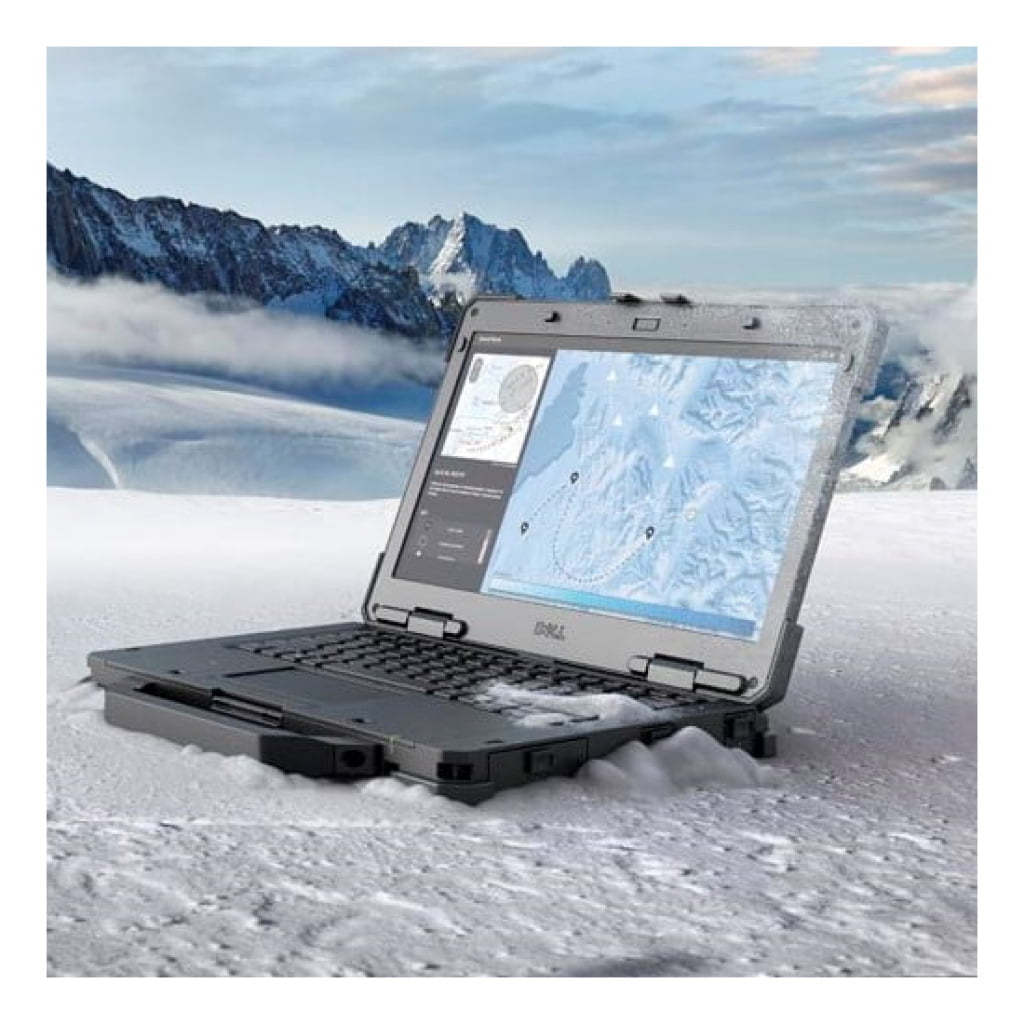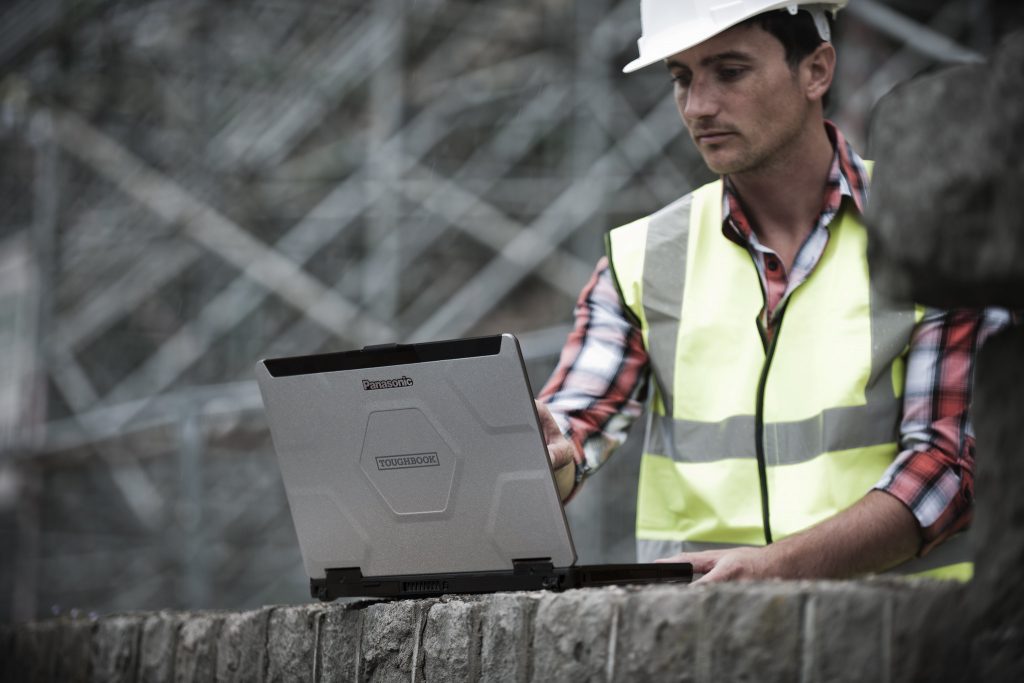When it comes to heavy duty laptops, the term ‘ruggedness’ defines their ability to withstand harsh conditions which would otherwise jeopardize the functionality of standard laptops. Designed for durability, these rugged laptops are typically encased in strong, often military-grade materials, allowing them to resist:
Rugged laptops cater to users in demanding environments, such as fieldwork in construction, military operations, oil and gas exploration, and outdoor scientific research. The essence of ruggedness lies in the laptop’s enhanced survivability and reliability in challenging conditions.
Rugged laptops’ genesis traces back to stringent military demands for durable field-use computers. These early models were bulky, heavy, and offered minimal performance. The 1990s saw the commercialization of rugged computing, with companies like Panasonic introducing Toughbook—a milestone in combining durability with user-friendliness. The 2000s brought about significant advancements in materials and technology, making rugged laptops lighter, faster, and more resilient. Today, they incorporate state-of-the-art components and comply with tough standards like MIL-STD-810 and IP ratings, serving a broad array of industries beyond the military.
Heavy duty laptops are engineered to withstand harsh conditions and heavy use. Key components include:
These features collectively translate to a device that thrives in challenging environments.

Rugged laptops are tailored for durability and functionality in harsh environments. Manufacturers use high-grade materials like magnesium alloy for the chassis, which provides strength without excess weight. External port covers and shock-absorbing materials are also vital, as they mitigate damage from drops and prevent dust and moisture ingress.
Key design features include:
The effort extends to the internal components as well, which are secured firmly to endure vibrations and impacts that would damage standard laptops.
MIL-STD-810 is a series of tests designed by the U.S. military to evaluate equipment resilience. Heavy-duty laptops must pass this certification to be considered rugged. The tests challenge devices against:
Manufacturers subject laptops to these rigorous conditions, ensuring they can withstand harsh operational environments. Achieving MIL-STD-810 certification signifies a device’s durability and reliability for demanding applications, making it a key feature of heavy-duty laptops.
Ingress Protection (IP) ratings are pivotal in defining a laptop’s ruggedness. These ratings consist of two digits: the first signals protection level against solids like dust, with a scale from 0 (no protection) to 6 (dust-tight). The second digit represents protection against liquids, on a scale from 0 to 9K, indicating varying degrees of water ingress resistance. Heavy duty laptops often boast high IP ratings, such as IP65, denoting complete dust protection and the ability to withstand low-pressure water jets from any direction, ensuring reliability in harsh environmental conditions.
Heavy duty laptops are engineered for resilience, notably against impacts that would easily damage conventional devices. These rugged laptops employ a variety of strategies to absorb and dissipate shock:
Through these design implementations, heavy duty laptops maintain operational integrity and data security even in environments where drops and impacts are a common occurrence.

Heavy-duty laptops must endure extreme treatment, hence vibration and drop test durability are crucial. These rugged devices undergo rigorous testing to meet military standards, such as the MIL-STD-810G/H, which involves repeated drops from varying heights. Manufacturers also simulate the effect of continuous vibrations akin to those found in off-road vehicle usage to ensure components remain functional and intact. This level of durability reassures users that their laptop can withstand accidental impacts and the constant jostling of mobile work environments, maintaining operational reliability in challenging conditions.
Rugged laptops are designed for longevity and durability, which extends to their battery life and power management systems. These heavy-duty laptops typically feature:
These features ensure that professionals relying on rugged laptops can work for longer periods in remote locations without the need for constant recharging.
Rugged laptops are engineered to meet diverse operational needs through customization and modular design. Users can configure these devices with specific components that enhance functionality or durability in challenging environments.
This adaptability ensures that rugged laptops can evolve alongside changing technological demands, allowing for prolonged life cycles and investment protection.
In the rugged laptop market, certain brands have distinguished themselves for their durability and performance.
These brands and models are specifically engineered to withstand challenging environments, delivering reliability where traditional laptops cannot.
Rugged laptops are equipped with specialized software and security features to enhance their resilience. Operating systems in these devices often include:
Moreover, manufacturers incorporate hardware-based security features such as:
These layers of security ensure that rugged laptops remain as impregnable as their physical counterparts.
Rugged laptops are equipped with a variety of connectivity features to ensure reliable communication in the most challenging environments. These typically include:
Through these features, rugged laptops maintain continuous operation, regardless of location or adverse conditions.
Rugged laptops are designed for durability, but they do require periodic maintenance to ensure peak performance. Manufacturers typically provide detailed manuals on how to properly care for these tough machines. Customary maintenance may include:
The warranty of a rugged laptop often exceeds that of a regular laptop, reflecting their build quality and the trust manufacturers have in their products. These warranties can cover:
Support for rugged laptops is frequently robust, with dedicated helplines, on-site repair services, and often, a knowledgeable community of users online. Manufacturers may also offer:
Professionals across various industries find heavy duty laptops to be invaluable tools. These robust devices are particularly beneficial to:
These users leverage the exceptional resilience of heavy duty laptops to perform reliably under demanding circumstances.

As technology advances, rugged laptops are expected to become even more resilient and versatile. Key trends include:
When selecting a heavy-duty laptop, consider the following:
For individuals in professions that expose them to extreme conditions, rugged laptops are not just beneficial; they are essential. Military personnel, field engineers, construction managers, and even scientists conducting research in harsh environments rely on the durability and reliability that rugged laptops provide. These devices are built to withstand drops, shocks, temperature extremes, and exposure to dust and water, ensuring that they function in situations where standard laptops would fail. Consequently, rugged laptops are indispensable tools for professionals who cannot afford equipment failure in critical moments of their work.
Rugged laptops are designed with durability in mind, featuring reinforced frames, shock-resistant hard drives, and spill-proof keyboards to withstand harsh environments.
Yes, they are built to operate in a wide range of temperatures, often from well below freezing to above standard operating temperatures.
They often match or exceed the performance of regular laptops and include specialized components for reliability in challenging conditions.
Typically, they are heavier due to the added protective materials and shock-absorbing features.
For users with demanding outdoor jobs or those who travel frequently in extreme conditions, the investment is justified; for typical office use, a regular laptop might suffice.

Ulrik is an industry veteran with over two decades of expertise working with rugged computers and mobile barcode scanners. Brands include Panasonic, DELL, Getac, Zebra, and Honeywell/Intermec. He is known for his commitment to delivering products and solutions that increase operational efficiency. Dedicated to following new market trends and client satisfaction, Ulrik is a trusted advisor where rugged computers and mobile barcode scanners must be deployed.

Micro Nordic was founded in 2004 with the objective of offering customers fast, reliable and cost-efficient Rugged Mobile Product Solutions. We specialize in delivering current, End-of-Life and hard to find laptops, tablets and barcode scanners from leading manufacturers, such as PANASONIC, GETAC, DELL, ZEBRA & HONEYWELL.
We operate globally and can deliver bespoke turnkey solutions based on your requirements.
Micro Nordic ApS
c/o a. Hartrodt
11411 NW 107th Street
Suite 6
33178 Miami
USA